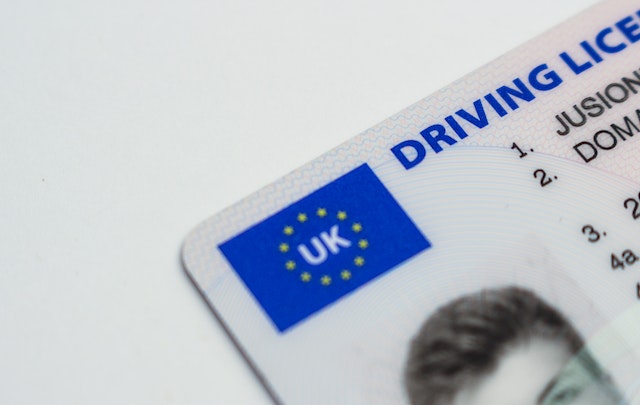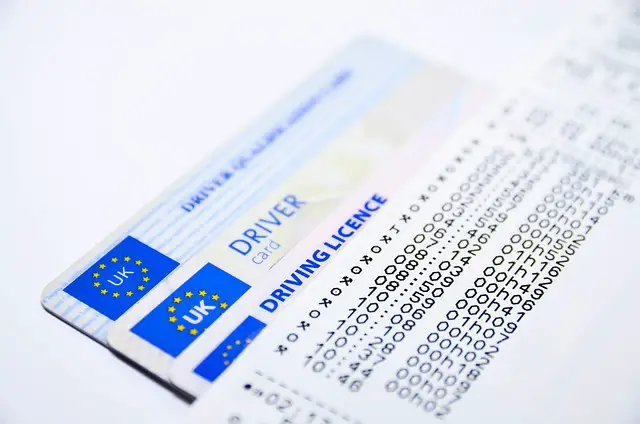
Can My Employer Ask for My Drivers License Number?
The contents of this web page are for informational and educational purposes only, and nothing you read is intended to be legal advice. Please review our disclaimer before taking action based upon anything you read or see.
Can my employer ask for my drivers license number? Yes. Your employer can ask for your driver’s license number. The American Human Rights Council states that an employer may ask for your driver’s license number if driving “is an important responsibility of the employment.” As a result, they could only accept a candidate with a good record. For many organizations, automobile crashes are the biggest risk of loss, according to the authorities. This makes the request for this information very essential.
When workers drive a company vehicle, business owners are often held accountable for their carelessness. Asking for their driver’s license number is crucial when interviewing for positions that involve commercial drivers or the usage of business vehicles. This enables an employer to assess a candidate’s driving habits and determine if they are a cautious and responsible driver.
Red flags are present on a significant portion of driving records. Therefore, asking for the driver’s license number would help with due diligence in many businesses. Come along as we highlight more on this below.
What is a Driver’s License Number?

A driver’s license number is a unique identifying number that the issuing federal agency assigns to each motorist. This number is often required to be visible on a person’s state-issued driver’s license. Both public and private organizations often use individuals’ driver’s license numbers as distinctive identifiers in record-keeping.
Most states also give each driver a special identification number when issuing a driver’s license. The driver’s license represents the state’s permission for that individual to operate a vehicle on public roads.
Typically, this license has the driver’s license number written on it. Some states assign a driver’s license number based on the person’s social security number.
At the same time, other jurisdictions have particular methods for assigning each driver a unique number identification. People unable or unwilling to get a driver’s license might nevertheless try to get an ID card number that can be used in place of official identification.
Reasons Your Employer May Ask for Your Driver’s License Number
Some reasons your employer may ask for your driver’s license number include the following:
For keeping records
To maintain correct records, your employer could ask for your driver’s license number. Professionals in human resources are always looking for methods to simplify their work. They’ll save time and effort if they avoid asking you for this data soon.
One recruiter may be filling 100 jobs at once in a big company. Gathering all the data at once would make sense if there were three interviews for each post. With this, they may gather it without returning to the 100 applicants.
To look up your driving history.
Your company can ask for the number on your driver’s license so they can verify your driving history and background. This will assist in ensuring that your driving record is clean.
A pattern of frequent traffic infractions may be a sign that someone doesn’t care to follow the law. Someone who is inattentive, uncoordinated, or sluggish to respond and make judgments may be shown by a string of traffic accidents.
To run a credit report.
To run a credit check before your screening, your company could ask for your driver’s license number. Before conducting interviews, several big national corporations do a credit check on each applicant.
They do this to eliminate candidates and reduce the number of interviews the administrator must do. This is permissible as long as they play the same job as everyone who applies.
To assess your degree of credibility.
Employers are obligated to their businesses, coworkers, and the general public. They require proof that the candidate is risk-free, dependable, and trustworthy.
They must also confirm that you consistently follow the law and show consideration for others. That demands, at the very least, that there be no indication that you have ever been reckless, unreliable, untrustworthy, or disobedient to laws.
What Kind of Information Does an Employer Need Access to?
Some Kinds of Information an Employer Need Access to include:
- Name
- License numbers
- Tax filing number (TFN).
- Location
- Birth date
- Education
- Job experience
- National insurance number
- Emergency contacts
- Job history with the company,
- Sexual proclivities or preferences
- Details about your superannuation fund. This is necessary for your company to pay the required contributions.
- Details are essential for your employer to send money through a check, cash, or bank transfer.
Sensitive data must be stored more securely by enterprises than other forms of data.
Is It Legal for Employers to Ask for Driver’s License Numbers?

Yes. This is a proper action. In general, it is usually acceptable for an employer to demand that an employee possess a current driver’s license. Simply because no legislation expressly forbids it, this is permissible. However, doing so carries a significant danger of coming out as discriminating. For that reason, it could not be good to make that choice.
One danger is that it would deter people with impairments from submitting applications for the position. Some infirmities may make it impossible for a person to get a driver’s license, but they may not prevent them from working.
If you exclude these people too soon in the screening procedure, you risk unintentionally discriminating against people with impairments. Unless driving is necessary deployment, this may constitute discrimination under the Americans with Disabilities Act (ADA).
What Are the Risks of Giving Out Your Driver’s License Number?
Regrettably, if thieves manage to get their hands on the data on your ID or driver’s license number, many negative things might occur.
The following are some concerns associated with disclosing your driver’s license number:
Your ID may be bought and sold on the Dark Web.
Scammers may always sell your driver’s license number to gain quick cash if they don’t want to use it themselves.
Your driver’s license number is invaluable for those whose licenses have been suspended or revoked due to DUIs or DWIs.
Trading stolen private details on the Dark Web is one of the most prevalent forms of identity theft.
Criminals with warrants out for arrest may also purchase stolen driver’s licenses to create a false identity.
Fraudulent use of a license
When someone uses a false identity or the identity of another person to get a valid driver’s license or ID card, such behavior is known as driving license fraud.
When a person is not qualified for a legitimate license, this occurs. Undocumented immigrants and those with suspended or revoked licenses are the most common perpetrators of driver’s license fraud.
Make false identification cards using your driver’s license number.
Criminals need your driver’s license number to make a false ID that they may use in place of their own, which is slightly different from identity theft using a driver’s license.
If they are being held by law enforcement and have an outstanding warrant, a police officer will examine their ID instead of theirs while conducting a background check. The culprits will avoid capture if the warrant isn’t revealed in the background check.
If thieves use your ID to be pulled over for a traffic infraction, the charges will be recorded on your driving history rather than the thieves. You’ll thus be responsible for paying fines and defending yourself in court.
Construct a Fake Identity
Your driver’s license number may be used by criminals to create a false identity. These “synthetic” identities blend false information, your internet footprint, and stolen data from data breaches.
They could utilize a bogus name and birthdate and your genuine driver’s license number. They may create false identities to register new accounts, get official papers, operate phishing scams on social media, and more.
Alternatives to Giving Out Your Driver’s License Number
Some Alternatives to Giving Out Your Driver’s License Number include:
Credit Cards
Giving out the number from your driver’s license is a good option if you have a credit card with your picture on it.
Library Card
A user’s picture and, sometimes, their birth date or address are included on a library card. A library card may perform the same function as your driver’s license number. Once again, be prepared for some further inquiries.
Checkbooks
While most individuals no longer carry their checkbooks, the square piece of paper may still be used as additional identification.
ID photo images
The ideal choice is undoubtedly to have the actual copy in your hands, but taking the effort to take a snapshot of your ID and save them on your phone may be a useful substitute for disclosing your driver’s license number.
Conclusion
In conclusion, each motorist receives a unique number on their license from the government body that issues them. Usually, this number must be included on a person’s state-issued driver’s license.
Most states provide each applicant for a driver’s license a unique number that may be used to distinguish them. Furthermore, a permissible background check component may include your license number. Even if driving is not part of your employment, it is still true.
If you have a DUI or felony speeding record, some employers won’t hire you, while others may demand evidence that you’ve changed. Other less serious traffic violations indicate someone who isn’t particularly responsible or has low regard for authority.
Expert Advice
It’s not a right to work. As a result, an employer may ask for your driver’s license number to verify your suitability for the work. Therefore, when you are applying for a job that could entail driving, it is appropriate for an employer to ask for your driver’s license.
Of course, you may always decline, but doing so can get you fired.
In most states, you may be dismissed at any moment for any cause as long as it’s not discriminatory.
On the other hand, if you have an existing contract, go through it to see whether you must disclose your license number. If not, you might make the case that you are exempt from the job’s requirement that you provide your state driver’s license. Furthermore, it would help to be cautious while disclosing your driver’s license information. Once they access these facts, they will start making money off of you.

I’m a driven and accomplished law graduate and post-graduate, passionate about sharing my legal expertise via my blog. I hold a Bachelor’s degree in Law from the University of London (UK) and a Master’s in Law from the University of Derby (UK). Both gave me the foundational knowledge and skills to excel in my chosen career path.
Throughout my academic journey, I have gained extensive knowledge in various fields of Law, including Corporate and Business Law in the USA, Criminal Law, International Law, US Copyright law, and most importantly, American Constitutional law.


Comments are closed.